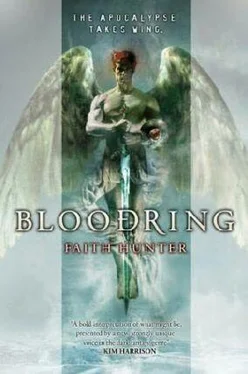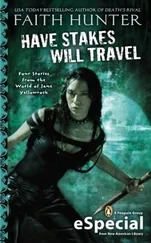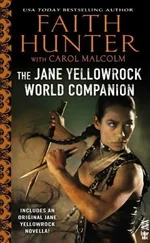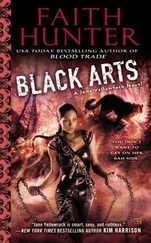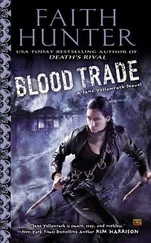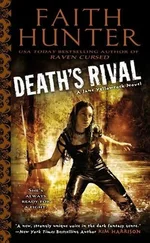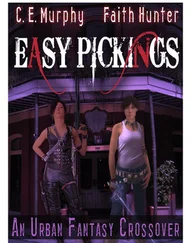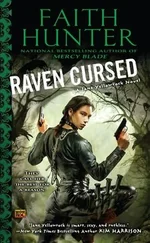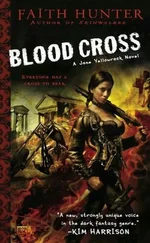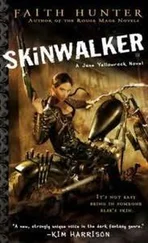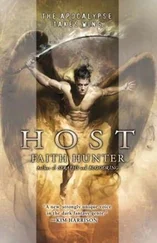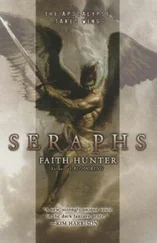The screen changed, displaying the customary three shots of SNN. In the largest, I saw the mushroom clouds of the few nuclear explosions, the first detonating in what had been the Koreas and in China, followed by the three on the West Coast of the United States, eight in Russia, two in the former Holy Lands, and ten on the continent of Africa.
In the stacked footage on the left of the screen were the twin seraphs, Mordad and Murdad, swords raised over Jerusalem and Mecca, respectively. The center screen mutated to the arrival of Metatron over Washington, D.C. Metatron, raven feathered, the seraph of death. Not one person in the most powerful city on the face of the planet had survived the first plague, all dead in less than twenty-four hours, though the president and his cabinet had escaped into a bunker somewhere and survived. Then shots of the Kremlin, St. Petersburg, Tokyo, Singapore, Bombay, Frankfurt, Geneva, and on and on as hundreds of thousands, as millions, died in the streets, all on the first day of the first plague.
The second plague followed, wars, pestilence, death, all displayed on the three screens, fast-tracking the end of the world as it once was. Not once did the Most High appear. As always, the announcer would be careful not to voice the fact that God the Victorious had never been caught on film. The only time a reporter had commented on the fact, she had fallen dead on the set, suffering a massive pulmonary embolism and cardiac arrest. All quite natural, or so they'd said. No news analyst since had been brave enough to test the theory.
Each of the three screens depicted storms, as the earth's climate underwent terrible change from mild global warming to ice age in months, the result of nuclear bombs, volcanoes, and earthquakes, just as scientists had long predicted. Not that there were many scientists around to gloat. Nine in ten had died, in proportion to the rest of humanity, the wrath of the Most High, God the Victorious, sparing no one in any socioeconomic, intellectual, or religious group.
The screen shifted, showing rioting in the streets as fanatics from every major religion claimed the end of the world and the ascendancy of their own belief system. The seraphs reappeared, this time not glowing and beautiful, but dark, faces carved with anger. The third great plague had punished the rioters doing violence in the name of the Most High. Rioters dropped where they stood. Then the plague moved on to the rest of the human population, striking mostly rural areas. In this plague, called the Plague of Punishment, no children under the age of six had perished.
To appease the seraphic host, governments appointed elders authorized to prohibit religious violence, to mete out punishment, to organize different believers in each locale, and to force them to cooperate. Many elders also had secular, political aspirations and ran for public office on county councils, in state legislatures, even for president. For a hundred years there had been little separation of church and state. Elders were cop, preacher, referee, judge, and hangman.
As SNN chronicled the end of the world, the three screens showed the arrival of the Angel of Darkness in a cloud of hornets, locusts, hail, and fire. Devil-spawn poured up from the ground and devoured dead and dying humans in a scene so grisly, I always closed my eyes against the sight of blood, brimstone, and tearing teeth. Cold chills raced up my arms. Nausea rose. My hands were tingling, breath too fast. My nostrils flared, scent searching. My heart raced. I longed for my blades, needing the comforting warmth of the bloodstone hilt in my hand as my blood raged.
Dragons, later identified as Major Powers, directed battles against seraphs, their centipede or spider or snake bodies, with human hands and serpent heads, crushing entire towns. The stuff of nightmares. Because the seraphs turned against this new evil with swords raised and voices booming, many humans fought with them against the common enemy.
As the war progressed, the ice caps grew, Darkness became more bold, and bands of seraphs and humans took the war underground, where the Powers lived and bred. Finally, in the last great battle, seraphs, mages, and humans fought side by side against the Darkness, driving evil into the deeps, though announcers seldom mention neomage contributions.
I looked away from the death of the old world and the violent, bloody birth of the new. The world that followed the end of the Last War had become a world of peace, of political and religious accord, at least on the surface. But mage priestesses had prophesied that war would come again soon; it wasn't over. Not that humans listened.
The announcer appeared in the center screen, mouth moving. The footage of the hundred and fifth was done. The top screen went dark and a murky scene emerged, a jerky digital feed, distorted. A man was walking fast down a dark alley, a knapsack slung over his shoulder. The figure was lit for a moment in the edge of a security light, a peaceful aftermath to the historic videos, yet my heart thudded, stuttered once, and started again. I put a hand to my chest against the pain. It was Lucas, shadowed by a growth of beard, his deep-set eyes only dark holes until he lifted his head to reveal his face. My gut tightened. He was still beautiful. Far too beautiful.
We have a report that Lucas was attacked in an alley and dragged off, Bartholomew had said. Not a report. A security-camera video.
On the screen, boxes and a woodpile stood to one side, scooters and a tangle of bicycles half visible at the extremity of the circle of illumination. A shadow slithered in the dark, disjointed and stiff. A second shadow flitted, resolving into the shape of a man moving forward fast. A third shadow joined the rush and the two collided with Lucas. He went down to a knee and one hand.
Arms reared back and slammed down, feet kicked viciously. Lucas fell, covering his head, shielding his face. Blows punched on the hazy screen, the silence adding to the horror as my mind waited for the sound of impacts, grunts, the echo of screams. There was only silence. The violence depicted in the anniversary video was far more bloody, but this was personal, intimate. Chills raced up the back of my neck. Lucas' face was covered in blood. I gripped my wrists, wishing I'd worn blades, feeling naked, vulnerable.
The body on the ground was dragged away, leaving the ruptured knapsack pushed to the side, its contents scattered. A smear marked the path the assailants took as they pulled him out of the camera's view. Blood. Lucas' blood.
Coffee was forgotten. Chills whispered down my arms, lifting the fine hairs. Horror danced along in the icy wake. Rupert raised the level of sound as the announcer spoke.
"This vicious attack is similar to those shown on television in Pre-Apocalyptic times, a memory of violence the human race has put behind us, unsuccessfully, as we see all too often. This assault reminds us once again that the final judgment has not taken place and evil still lives in the hearts of humans—" Rupert muted the sound again on his falsely pious voice.
"Violence we've put behind us?" Rupert mused. "There's a scene of a mob attacking a woman convicted of black magic in the lower screen. A mutilated body was found in the outskirts of Atlanta last week, a 'crime of passion, they're calling it. The disappearance of a mule train outside Knoxville, evidence of bloody conflict buried in the snow. Might be human, might be spawn. Drained bodies near Linville. Violence is everywhere." Rupert braced himself on the huntboard. "And the media caters to the propaganda of the Administration of the ArchSeraph in hiding it all." It was a dangerous sentiment, should a kirk elder overhear. But there was worry in Rupert's voice. I could smell a trace of fear on the air. "The cops came to the door last night," he added. "They think I had Lucas kidnapped and killed to get at his part of the inheritance."
Читать дальше
